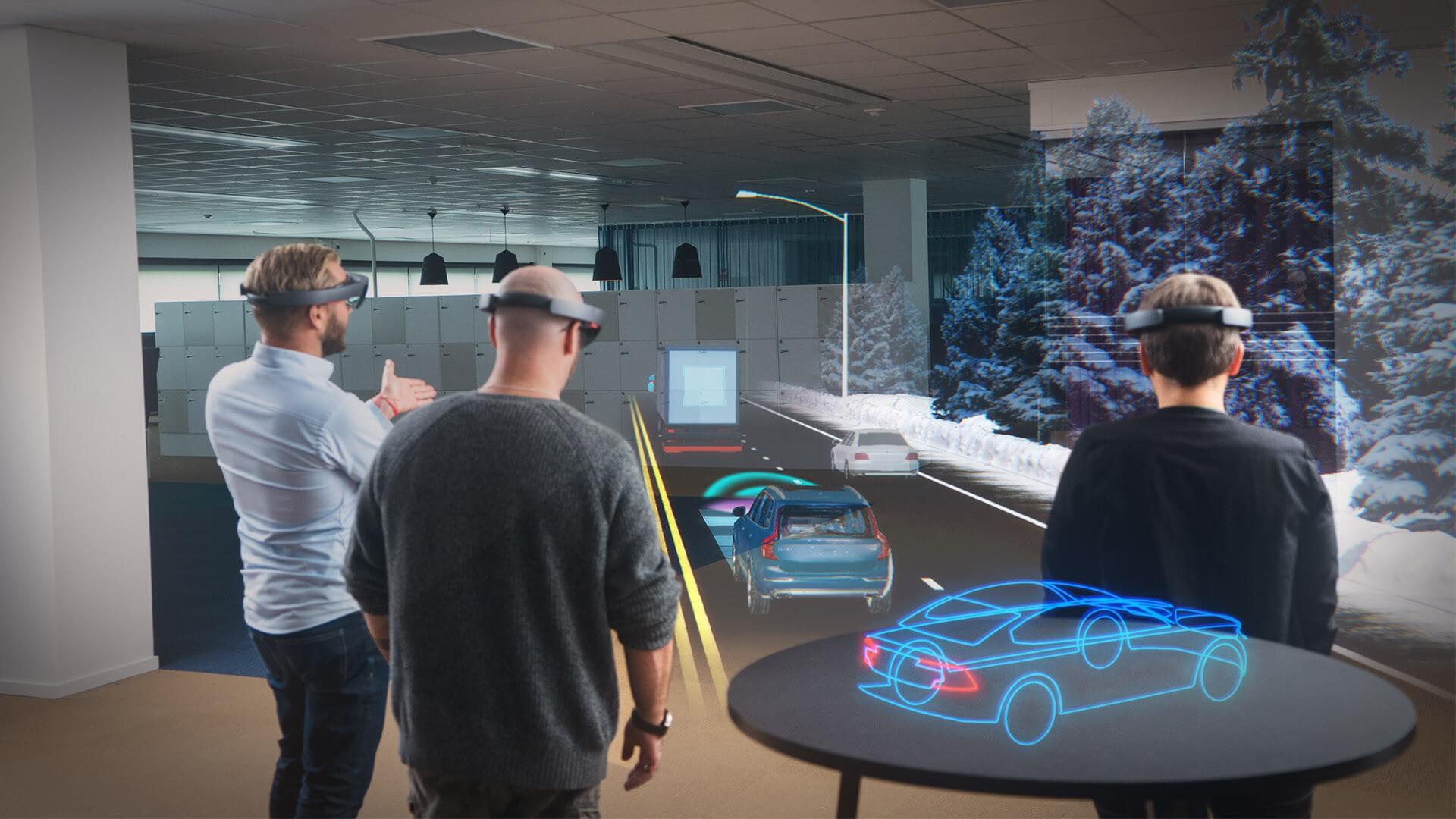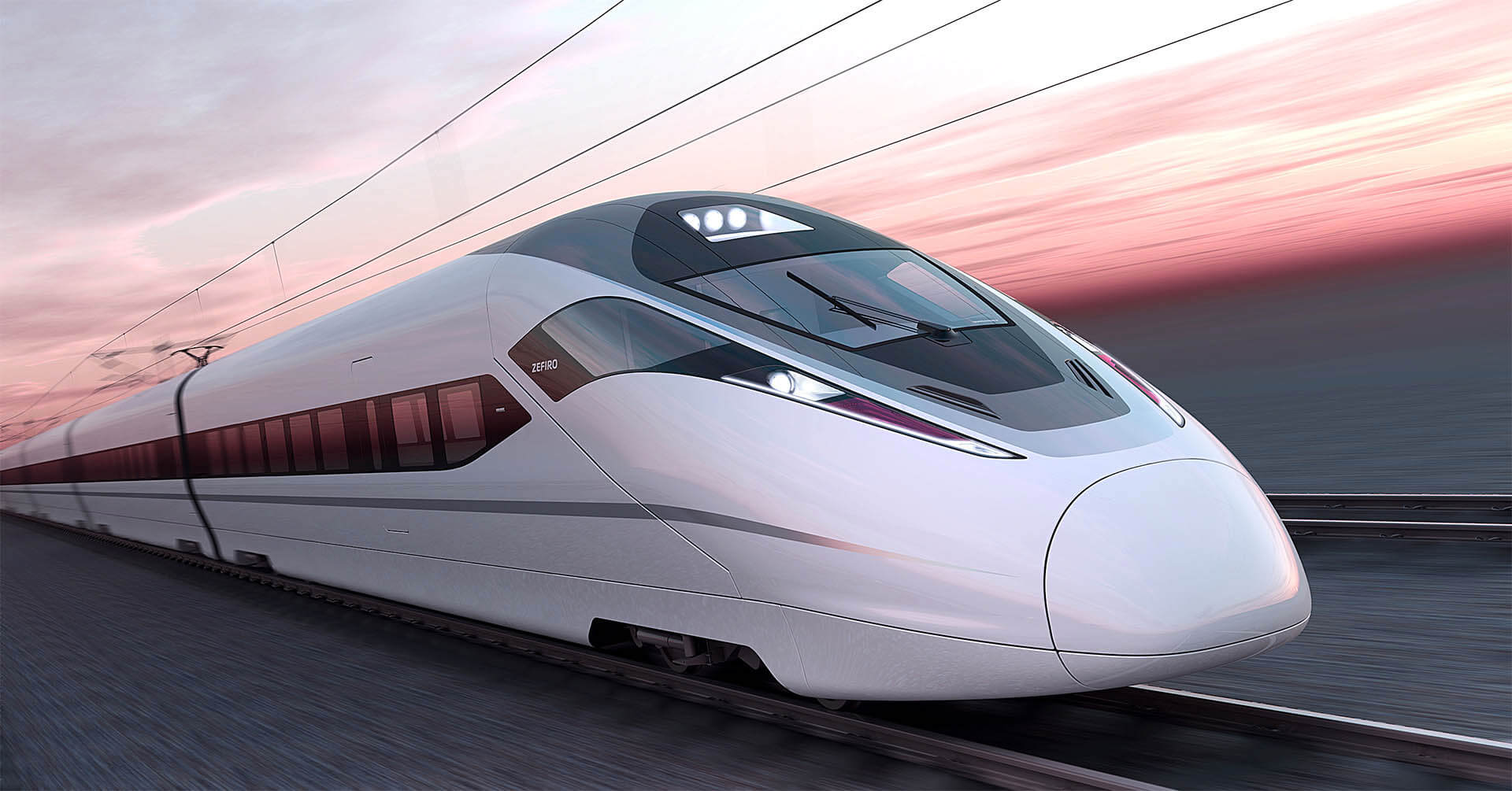7 Tech Predictions for 2022
After a surprisingly robust 2022, our collective attentions now turn to the new year, and many questions arise equally to what will happen in 2022. Some developments will probable exist obvious extensions to themes or ideas that started to take concord over the past 12 months, but there are always a few surprises every bit well. Exactly what those unexpected developments show to be is nigh impossible to foretell, but hither'due south a reasoned look at some key themes I expect to drive important advances in the tech industry in 2022.
Prediction one: AI Will Start to Enable Empathetic, Intelligent Computing

Image: Andy Kelly
As powerful and advanced equally the tech products we use everyday may be, it's however a stretch to call them "intelligent." Sure, they can perform impressive tasks, but in many means, they even so can't do the simplest of things, particularly in helping u.s.a. practise what we "meant to do" or thought to exercise, equally opposed to exactly what we told them to do.
The trouble boils down to a question of estimation, or the lack thereof. Eventually, we'll all have devices and services that practice what it is we're trying to practice in the nigh intelligent, most efficient style possible. The reality of those completely intelligent devices is nonetheless a long fashion off, of grade, just in 2022, I think we'll starting time to come across some of the first significant glimpses of what is yet to come, through central enhancements in the various personal assistant platforms (Alexa, Google Assistant, Siri, etc.).
Specifically, I believe applied advancements in bogus intelligence will start to enable a more contextual form of computing with some of our devices, particularly smartphones and smart speakers. Going beyond the simple question and single, detached response that typically marks these interactions now, we should offset to encounter more than human-like responses to our queries and requests. Multi-function conversations, more than comprehensive answers, as well as appropriate and even insightful suggestions based on what it is we're doing (or trying to do), volition start to give us the sense that our devices are getting smart.
Ironically, part of the way this development will likely occur is past learning more than near people and how they think—essentially building a form of digital empathy. By embedding more than of the typical reactions that people accept to certain questions, or the sensation of what they typically do in certain situations into AI models, nosotros should starting time to see our digital devices go just a bit more homo. In fact, if the engineering science advances as I expect, we'll be able to end calling AI "artificial intelligence" and start calling it "bodily intelligence."
Prediction two: For Semiconductors, 2022 Will exist the Year of the Accelerator

After decades of domination past CPUs, the world of semiconductors is witnessing a dramatic transformation in which other types of chip architectures are starting to drive a major shift in power, importance and influence. The process started several years dorsum with the ascension of GPUs in applications beyond just their traditional function of calculator graphics, most notably machine learning and artificial intelligence. Since then, we've seen many other of import types of bit architectures come to prominence, from one-time-line concepts like FPGAs (field-programmable gate arrays) to new ones similar dedicated vision processing units (VPUs), AI-focused tensor processing units (TPUs), and much more. Collectively, these alternative chip architectures are often chosen "accelerators" because they speed upward specific tasks.
In 2022, we're likely to see several additional new chip architecture announcements and, more importantly, much wider use of computing accelerators across a variety of devices and applications. From information centers to consumer gadgets, the next year volition see a tremendous amount of attention focused on these newer types of more than specialized semiconductor chips. To be clear, it's not that CPUs and other traditional calculating elements will exist going away, simply a sizable portion of software development, R&D, and overall focus in 2022 is going to exist directed towards these game-changing new components.
Part of the reason accelerators are so important is because they're more than specifically targeted tools. While CPUs are still great general-purpose computing engines, these calculating accelerators are designed to do certain tasks faster and more efficiently. Realistically, none of the individual accelerators volition accept the same level of influence that CPUs have had, but collectively, their bear upon in the new year will be strongly felt.
The implications of the shift abroad from general purpose semiconductors to more tightly focused fries are huge. Not only will this evolution bulldoze changes in terms of how products are designed, and what types of products are built, simply it will also probable shift the role and influence that designers and builders of these chips take on the overall tech industry supply chain. Plus, though information technology may not exist easy to predict exactly what new applied science-based products volition surprise usa this year, it's not hard to say that there's a very skillful adventure it'south going to be powered past one of these new calculating accelerators.
Prediction 3: AR/VR Focus Shifts to Part Time Utilise

As many predicted, 2022 proved to be a very eventful year for augmented and virtual reality. Final year saw the introductions of Apple's ARKit and Google's ARCore smartphone augmented reality platforms, the release of Windows 10 Mixed Reality headsets, the surprising unveiling of Lenovo'due south Mirage headset as role of their Star Wars Jedi Challenges collaboration with Disney, the annunciation of a depression-cost headset from Facebook-endemic Oculus, and even the debut of Magic Leap's mixed reality headset.
With all these pieces in identify, it would seem that AR and VR are primed to have a very potent 2022 and yet, I believe the reverse will be the case. While this twelvemonth volition certainly savor its share of additional announcements and developments for AR and VR products, the full general level of enthusiasm and excitement effectually the category has arguably faded—we've entered the trough of disillusionment.
As a result, I believe 2022 will likely exist a yr of reflection and refocusing for AR and VR, with particular attention being paid to usage models that are different than what many had originally predicted. Part of the trouble is that people have had unrealistic expectations virtually how often and how long people desire to engage in AR or VR experiences. Initial hype around the categories suggested that they could provide a new computing paradigm that would essentially replace our existing all-24-hour interval devices. The reality, yet, is far unlike. Between the obvious challenges of having to hold your AR-enabled smartphone out in front of you to apply an AR app, every bit well as the physical discomfort of wearing large, bulky headsets, most AR and VR production experiences are measured in small numbers of minutes.
Now, there isn't necessarily wrong with that scenario, if that'southward what you were led to believe was going to be the case, and if you bought a product that was priced and positioned as an occasional use peripheral. At the moment, still, many AR and VR products are every bit expensive as master computing products, and many AR and VR apps presume people will use them for pregnant amounts of time. That's why this year, I look to meet a lot of endeavor existence spent to develop AR and VR products and experiences that ameliorate friction match their realistic part-time usage levels.
Prediction 4: Border Computing Transforms the Cloud and Subsumes IoT

For the last few years, information technology seems, anybody and their sister has been waxing rhapsodically about the virtues and opportunities offered by the Internet of Things (IoT). Connecting all kinds of devices together using simple cyberspace protocol (IP) connectivity standards was supposed to enable smart cities, smart homes, smart factories, heck, pretty much smart everything. And yet, here we stand at the dawn of 2022 and—with a few notable exceptions—very few of those things take really come to laissez passer.
In retrospect, it's not really hard to run across why. Merely connecting things together doesn't necessarily provide whatever real value, and even tapping into the new data sources enabled by IoT hasn't proven to be as fruitful as many had hoped.
The IoT practise hasn't all been for naught, however, considering it opened many people's eyes to new types of computing models. In particular, the notion of a fully distributed calculating environment, where dissimilar types of devices with widely varying levels of computing power can exist both connected and organized together in a manner that allows them to reach certain tasks is arguably an evolution of the original IoT concept. Instead of focusing on only the connection of "the things," however, this new model focuses on the combined, distributed compute of "the things." What this does is enables different groupings of devices or infrastructure components to work together in more than efficient and more effective mode. It's substantially applying the principles of distributed internet connectivity to computing resources, and in the procedure, transforming how we remember about centralized deject computing models.
I of the fundamental ingredients in this new, evolved version of the cloud is computing components that sit out at the stop of the network, closest to where people who are trying to accomplish certain tasks are located. These edge computing elements—which can range from consumer endpoints to industrial gateways to network routers—get a critical function of this new calculating fabric, in part, because they pull some of the work that used to be washed in centralized deject calculating resources and do that work on the edge. In some instances it'southward to avert latency, in others information technology'southward to accept advantage of unique capabilities found within border devices, but regardless, they shift the residual of computing ability away from the cloud at the centre of everything and towards a highly distributed, border-driven model. We saw the beginnings of this trend in 2022, but in 2022 edge computing will start to deliver on the promises originally made past IoT and drive non only a more connected, but a more than intelligent tech device world.
Prediction v: 5G Drives New Types of Competitive Connectivity

With the recent formalization of the 5G NR (new radio) specification (part of 3GPP Release 15 to be exact), the telecom industry has entered into an exciting stage. 2022 will not, however, encounter the official unveiling nor the commercial availability of 5G—you'll have to wait until at least 2022 for that. The new year will start to bring united states some critical connectivity enhancements, though, many of which will be inspired by 5G.
While well-nigh people are focused on the expected speed enhancements to be offered by 5G, many of the more exciting ideas associated with the forthcoming broadband wireless network standard have to do with the range of connectivity options condign bachelor. In detail, the power to have a consequent connectivity experience, regardless of your location, the number of people/devices around you, and other mitigating factors that commonly limit the speed or quality of our connections, is a key goal for 5G. In improver, there's a growing need for extremely low power connectivity options for some types of devices that live out at the network edge.
Thankfully, many of these same principles and some of the key underlying technologies necessary for 5G will be showing up in other places in 2022, with the internet result being that we'll outset to savour some 5G-similar benefits this calendar yr.
The latest WiFi standards (802.11ax and 802.11ay), for instance, are expected to make a formal appearance in 2022. They volition leverage both the kind of spectrum efficiency and signal modulation enhancements that 5G will employ to fit more connections/information into a given amount of radio "space," as well every bit using millimeter wave radio technologies (in the case of 802.11ay) for transmitting data at faster rates (though over shorter distances).
This year should likewise see the wider appearance of several technologies that combines elements of LTE and WiFi, including LAA (Licensed Assisted Admission), LWA (LTE-WLan Assemblage), and MulteFire, all of which offer improvements in wireless service by using some of the unlicensed radio spectrum currently used past WiFi to deliver wireless broadband 4G LTE signals.
In improver, with the proposed buy of Sigma Designs past Silicon Labs in 2022, we should see the combination of Zigbee and ZWave—two ultra-depression-power connectivity options primarily used in smart home applications—in future iterations of the combined visitor's products.
Ironically, many of these newly enhanced connectivity options arguably inspired at least somewhat by 5G may terminate up competing with it at some indicate past 2022, simply for the next year, we should be able to relish the enhanced connection benefits.
Prediction six: Tech Business concern Models Fall Under Increasing Scrutiny

After years of blissful disengagement, the tech industry faced an unprecedented amount of pushback and scorn in 2022, equally major tech companies like Google, Facebook, Uber and more constitute themselves in challenging political, judiciary, and legislative environments. In 2022, the pressure that tech companies face will probable increase, and I expect that scrutiny volition start to extend to business organization models as well.
The tech manufacture continues to perform extraordinarily well from an economic and business concern upshot perspective, and it'due south generally been seen every bit a prophylactic haven for investment. However, it's also been granted extraordinary elbowroom when information technology comes to valuations for companies that—were they in any other industry—would be considered to have pretty questionable business models (from a potential profitability perspective, that is).
Tech-focused venture capitalists, hedge fund managers, and other financiers take managed to create and nurture an surroundings where businesses built on pretty flaky ideas continue to survive and even support i another. At some betoken, this firm of cards is likely to fall and with increasing amounts of unwanted attending existence focused on the tech industry, 2022 could be the year that it does.
In item, I recollect we'll see questions around "sharing economy"-based companies (such as Uber, etc.), which savour enormous valuations despite not having made whatsoever profits, and are unsafely dependent on regulations that could easily change. In addition, despite the current hype, cryptocurrencies like Bitcoin—which stand for the penultimate example of a technology valuation based on essentially nothing simply an interesting idea—are likely to face serious challenges in 2022 equally well.
Prediction 7: Voice Computing Cacophony

Image: CNET
As intriguing, popular and powerful as vox-based computing devices like smart speakers are proving to exist, I await that tongue processing (NLP)-driven interactions are going to showtime facing some serious challenges in 2022. Why, y'all inquire? In office, I think they could end up beingness a victim of their ain success.
Because of the popularity of voice-based personal assistants, we're starting to meet the engineering science embedded across a broad range of devices, from lamps, to TVs, to cars and beyond. In addition, after initial experiments with a single unit, many people have started putting smart speakers all over their homes. The practical net result is that onetime in 2022, a large percentage of personal banana users will have regular access to multiple assistants simultaneously—frequently across multiple platforms. Combine that with the fact that in 2022 nosotros'll likely outset seeing vendors enabling people to customize the trigger discussion for these diverse administration to start listening and, well, it's a quick recipe for disaster.
Imagine what will happen, for case, if, for consistency's sake, yous alter them all to answer to "computer" and and so you ask a question or make a request to the "computer." Yikes! (Or, at least, an interesting practice.) As it is, I've started to see a few people talk about how they've heard their Google Assistant automatically reply to their Amazon Echo (or vice versa). Throw in your ain queries and the chances for vocal computing commotion will likely be very high.
Tech vendors can obviously offset to program for a few of these potential outcomes and consumers can endeavor to avoid them, but this isn't the merely challenge associated with the realities of multiple competing assistants in a unmarried household. What if you lot really want to take advantage of the different assistants to do different tasks because you observe one is better at responding to one kind of query than some other? In essence, you'll have to try to larn to speak the unique "language" of each assistant and direct the advisable query to the advisable banana. We may encounter third-political party vendors attempt to create a "meta-assistant" that doles out unlike questions to different assistants and becomes the single betoken of interaction, but the likelihood of competing tech vendors enabling this type of capability seems low.
Don't get me incorrect, I'one thousand certainly excited virtually the potential that voice-based interactions can bring to speakers and all our tech devices, simply I'm concerned nosotros could hit some serious roadblocks in 2022.
Bob O'Donnell is the founder and chief annotator of TECHnalysis Research, LLC a applied science consulting and market enquiry firm. You can follow him on Twitter @bobodtech. This commodity was originally published on Tech.pinions.
Source: https://www.techspot.com/article/1552-tech-predictions-2018/
Posted by: glennsucts1979.blogspot.com


0 Response to "7 Tech Predictions for 2022"
Post a Comment